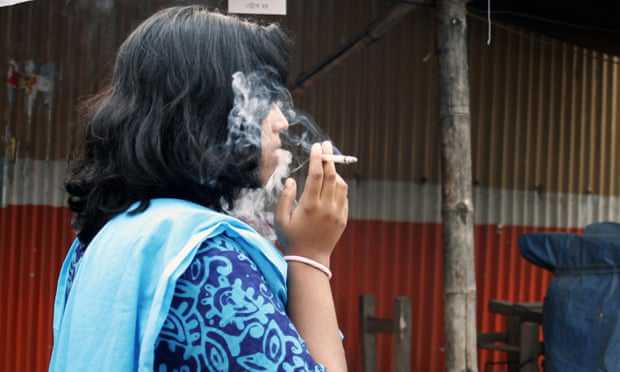How big tobacco keeps cancer rates high in countries like mine

aring for people with cancer in Bangladesh – as I do every day – should be getting easier. After all, we’ve had a decade-long economic boom, with extreme poverty rates halved. This, in turn, has led to dramatic health benefits, with large reductions in maternal and child mortality.
So why aren’t we seeing similar improvements in cancer?
It’s a complex issue, of course, but in Bangladesh – as in so many developing nations – things would be so much easier if it weren’t for one particular industry: big tobacco.
Having lost the battle against tobacco regulation in the west, this nefarious industry is desperate to stop poorer countries from following suit, doing everything it can to block an honest conversation about tobacco taxes. Instead it overstates its own contribution to the economy, and promotes unsubstantiated arguments that high tobacco taxes encourage smuggling. The industry lobbies against change, while our labyrinthine tobacco tax structure makes administration difficult and evasion very easy, resulting in the loss of revenue vital for our continued national development.
The scale of our tobacco problem is daunting: nearly a quarter of our men, women, and young people use some form of tobacco, and three of Bangladesh’s five most common cancers – lung, mouth and oesophagus – are strongly linked to this habit. My colleagues at the Bangladesh Cancer Society working with Cancer Research UK and the American Cancer Society have just published a report showing the cost tobacco imposes on the country’s economy: a shocking £2.7 billion per year. As a stark comparator, consider this alongside the UK’s £170m annual aid to Bangladesh.
Big tobacco is enormously financially damaging too – I see with my own eyes that most of those who suffer and die prematurely are adults of working age, while even those we successfully treat can be off work for many months, and some never even return. This can financially ruin whole families – a course of radiotherapy costs around £150 in the public sector and £1,500 privately. Despite our economic growth, the average per capita household income is still only £45 a month.
It doesn’t have to be this way. My government can, and should, stand up to the tobacco industry. As countries like the UK have clearly shown, regulation and taxation of tobacco products can bring smoking rates down, encourage smokers to smoke less, and discourage young people from taking it up.
And yet tobacco in Bangladesh has become more affordable over time. Even though the government has brought in some tax increases, these have not kept pace with income growth at the household level.
Of course, we face other issues too. Our population of over 164 million has just 24 cancer treatment facilities, while our cancer rates are creeping upwards thanks to a shift from diseases related to poverty – such as infections – to non-communicable diseases such as cancer, heart disease and diabetes, which are more typical of high-income countries like the UK.
But a growing cancer problem doesn’t have to be the inevitable consequence of economic development.
As Cancer Research UK has noted, the UK’s smoking rates have been declining since the 1960s and lung cancer rates are following suit. This is not luck or coincidence. It’s the result of regulatory changes – smoke-free public spaces, standardised packs, health warnings and tax increases. The Bangladeshi prime minister has said she wants a tobacco-free Bangladesh by 2040, but to achieve this she needs to act urgently. The health and wealth gains for Bangladeshis would be enormous.
Source: https://www.theguardian.com